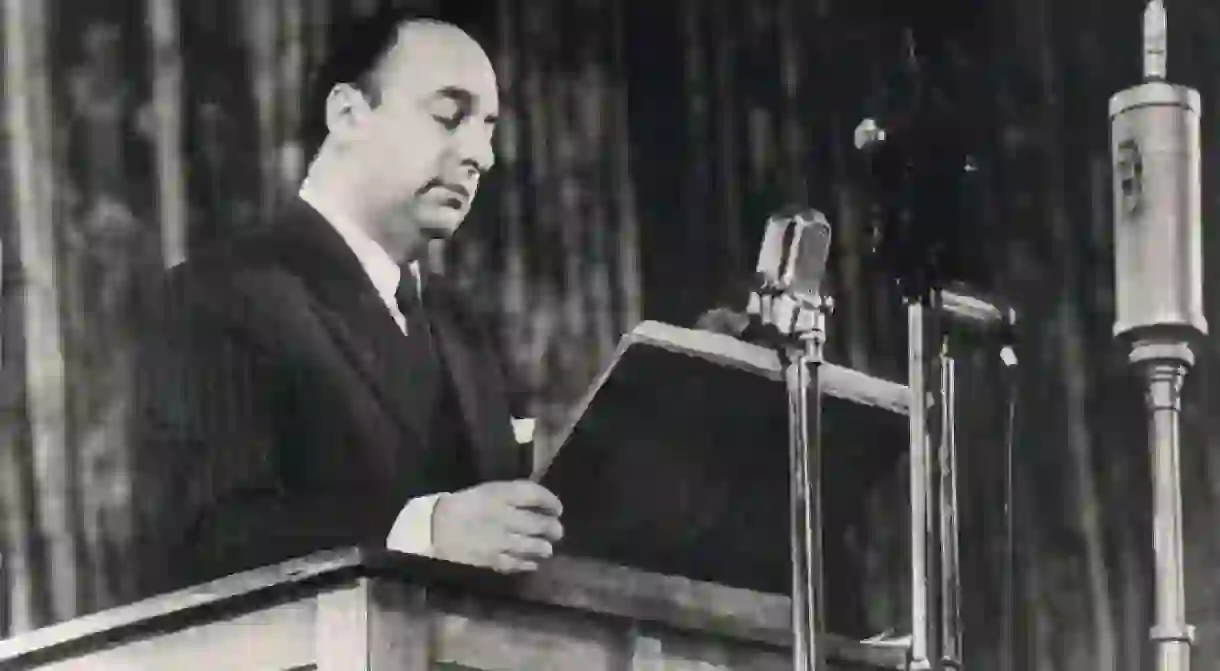How Did Pablo Neruda Really Die?

Since Pablo Neruda‘s death in 1973, days after the military coup that violently ousted President Salvador Allende, Chileans have demanded the truth about what really happened. Neruda was a close friend and political ally of Allende, and died at the same time many other prominent communists were being targeted by the military regime. Though prostate cancer was officially listed as Neruda’s cause of death, the Chilean government released a statement shedding light on what really happened.
Over the course of his life Pablo Neruda was no stranger to political persecution; there were repercussions to living life as an outspoken communist on the international stage. Though Neruda didn’t start out as a political poet, his trips abroad as a diplomat heavily influenced him. After an introduction to political activism while in Spain during the Spanish Civil War, the poet returned to Chile an emboldened and decidedly political writer.

After returning home, Neruda spent time in Chile as a communist senator, until the election of President Gabriel González Videla who adopted an anti-communist political stance amid labor protests and forced Neruda to live underground. During Videla’s presidency, Neruda lived as a fugitive, on the run in Chile for nearly two years before he escaped to Argentina and moved to Europe. This story is the premise for Chilean director Pablo Larrain’s new movie, Neruda.
After his exile, Neruda returned to Chile in 1952. He continued to be a prominent political voice in the country. He maintained a close relationship and alliance with socialist Salvador Allende, who was democratically elected president of Chile in 1970. Under Allende, Neruda served as ambassador to France and was awarded the Nobel Prize in 1971.
Everything changed in September of 1973, when the US-backed military regime, under the leadership of General Augosto Pinochet, staged a coup d’état that established a military dictatorship in Chile. Thousands of left-leaning intellectuals, professors, politicians, artists and students were exiled, murdered or disappeared. Beloved folk singer Victor Jara was tortured and executed in the National Stadium of Chile. Fellow artists like Neruda faced a similar threat.

The military coup occurred on September 11, 1973. On September 23, 1973 Pablo Neruda was sent home from the hospital. He was ill, suffering from prostate cancer, and was administered an injection in the stomach, an irregular practice at the hospital. The poet died hours after the injection, due to heart failure. His official cause of death for decades has been cancer, even though many Chileans believed he was actually poisoned through injection, a claim corroborated by Neruda’s driver, Manuel Araya.
Though these rumors haven’t been unequivocally substantiated, the government finally opened up an investigation into the matter in 2013 and Neruda’s body was exhumed to search for evidence of lethal substances. In 2015, the government released a statement saying it was highly probable Neruda’s death was the result of third-party intervention.

Thousands marched at Neruda’s funeral, a demonstration not even the military regime could suppress. Chileans still pay tribute to the poet. Neruda is buried at his home in Isla Negra, along with his wife Matilde Urrutia. Neruda’s home is also a museum commemorating his life and poetry.
Investigations looking into the deaths and disappearances that occurred during the Chilean dictatorship continue today. Over 3,000 Chileans were killed during the dictatorship, and another 200,000 were exiled. The Museum of Memory and Human Rights in Santiago offers insight into understanding the suffering and loss during this complicated period of Chile’s history.













